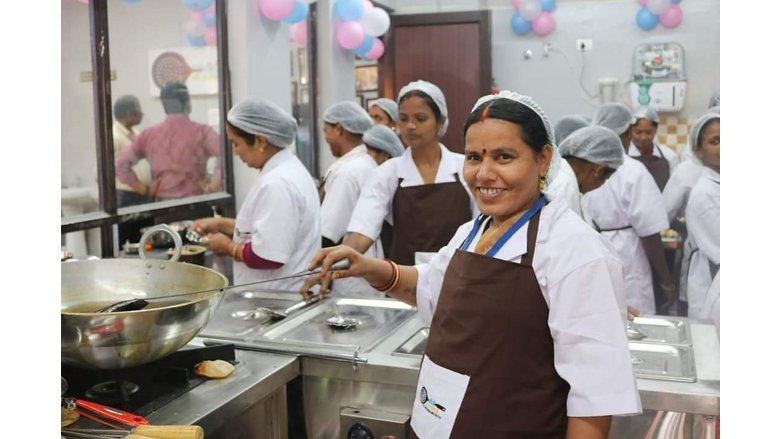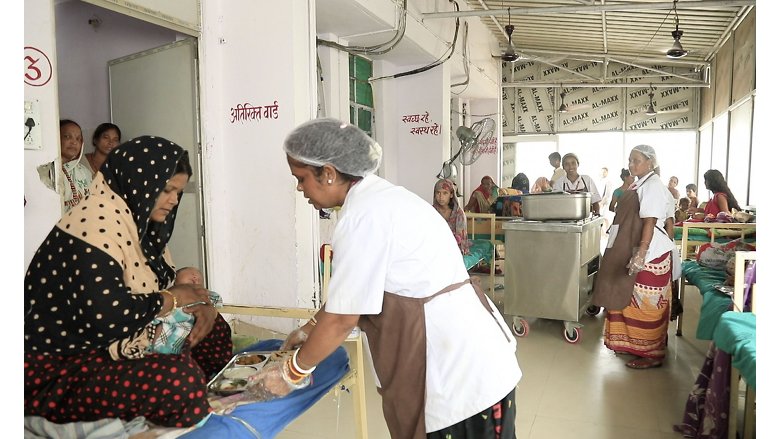It is still dark at 4 am as Leela Devi wakes up in her home in Baghmanjhua village, in the eastern Indian state of Bihar. As the sun rises, she busies herself with making breakfast and lunch for her family and readying her three children for school. She has a busy day ahead as she leaves for the Koielwar Mental Asylum Hospital in Bhojpur district, seven kilometers away from her home, where she works in the kitchen of the Didi Ki Rasoi.
Dressed in a traditional saree from home, at the hospital Leela Devi dons a white coat over the saree, a protective transparent cap on her head and adjusts her brown apron. Her day at the kitchen or rasoi starts at 6.30 am as she goes over the menu for the day and starts the prep work for making breakfast and lunch for the patients and staff at the hospital.
“My husband works in a grocery store, and it has not been easy to support our family just on his salary,” says Leela Devi. “In 2022, when someone from my village self-help group told me about the Didi Ki Rasoi, I was hesitant at first. I didn’t know anything about working in a canteen or restaurant or with customers. But with support from my family, I thought I will give it a try.”
Leela Devi takes turns working with the other women in the Didi Ki Rasoi kitchen and canteen which serves over 250 people every day. This canteen is serviced by 26 women who work in two shifts as they prepare meals for the patients, their attendant, staff, and walk-in customers of the canteen.
“Before I joined Didi Ki Rasoi, I was just an ordinary woman; I had no real sense of identity or uniqueness. Didi ki Rasoi has given me a sense of self-respect as I don’t have to ask my husband for money anymore,” she smiles. Leela Devi, who has studied till eighth grade, now earns a salary of Rs 8,000-10,000 each month from the enterprise.



